Discover Broady Windsor Group Podcast
Broady Windsor Group Podcast

Broady Windsor Group Podcast
Author: The Broady Windsor Group
Subscribed: 0Played: 1Subscribe
Share
© Copyright 2026 The Broady Windsor Group
Description
The only real estate podcast for homeowners seeking guidance and support on everything related to owning a home. This includes much more than just buying or selling. You'll enjoy candid, insightful conversations with super interesting guests on everything from mortgages and financing to home maintenance tips, renovation & design advice, and of course the latest insights and analysis on what’s happening in our local West Island of Montreal real estate market. Check out https://broadywindsor.com/ or connect with us on Facebook, Instagram, LinkedIn and YouTube.
34 Episodes
Reverse
Most people assume downsizing is difficult because it’s sentimental. Scott and Sean agree the emotions are real, but they’re rarely the main source of stress. The real problem is that many homeowners start too late, rush decisions, and do things in the wrong order. This episode reframes downsizing as a planning project, not a reaction, and walks through what to do first so you keep your options open later.The Biggest Mistake: Downsizing Without ClarityA common scenario is homeowners deciding they “need to sell” before they’ve defined why they’re moving and what they actually want next. Scott and Sean explain that rushing into a condo purchase or locking in a next step too early often leads to regret a year or two later. The goal is to slow down and get clear on the “why” before choosing a property type or timeline.Not All Downsizers Are the SameDownsizers aren’t one demographic. The conversation covers younger downsizers whose kids have recently left home, as well as seniors staying in family homes well into their 80s and 90s. Each profile has different motivations and trade-offs. Some want less maintenance, some want fewer stairs, some want a location shift, and many are reacting to fatigue from major home issues like flooding, roof leaks, or ongoing upkeep.“I Don’t Want Smaller Rooms, I Want Less Rooms”Scott and Sean share how their mom’s downsizing journey revealed a key insight: many people don’t want to shrink their lifestyle, they want to simplify it. Early on, she wanted fewer rooms but still needed space for family gatherings. Later, her priorities changed and she no longer wanted to be the host. This section highlights how downsizing needs change over time, which is why planning early matters.Where Are You Going Next: The Question That Drives EverythingThe number one hesitation they hear is uncertainty about the next home. People worry about what the new space will feel like, whether it fits their routines, and whether the location matches their lifestyle. The episode emphasizes that you can’t build a smart timeline without first exploring where you want to live and what type of home truly fits your next chapter.The Financial Reality: Downsizing Can Be a Lateral MoveMany homeowners expect to “cash out” equity by moving into something smaller. Scott and Sean explain why that often doesn’t happen, especially when the next home is newer, in a walkable area, or in a highly desirable pocket. By the time the purchase price and moving costs are calculated, the financial result can feel surprisingly flat. This is why they encourage people to run realistic net proceeds calculations early, then compare that number to real purchase options.Preparing Your Home Strategically: Inspections, Planning, and ROIThey stress the value of starting with an accurate opinion of value and a pre-listing inspection. This gives homeowners visibility into what buyers may uncover later and allows fixes to be planned over time. They also talk about smart cosmetic improvements that can pay off when done intentionally, including decluttering, depersonalizing, paint, and targeted design updates. The guiding principle is to invest only when the return makes sense, not when it feels urgent.Build the Right Team Early: Realtor, Family, Financial AdvisorA recurring theme is that downsizing decisions improve when homeowners surround themselves with the right people early. Scott and Sean recommend involving family from the beginning to reduce conflict later, especially when adult kids are emotionally attached to the family home. They also encourage bringing in financial planners and accountants early, because the feasibility of the move often comes down to timing, cash flow, and total cost.Buy First vs Sell First: The Trade-Off Most People UnderestimateThey break down why buying first offers comfort and choice but requires financial flexibility. Selling first reduces risk but introduces time pressure and can force short-term renting if the right property doesn’t show up in time. Scott and Sean suggest longer closings when possible to buy more time, and they normalize renting as a strategic move that can relieve pressure and help people “try on” a new lifestyle before committing.Bridge Loans, Lines of Credit, and Financing MisconceptionsA key highlight is the misconception that a bridge loan solves the buy-before-sell problem for cash buyers. They explain why bridge financing typically requires a mortgage component and why many downsizers need to explore alternatives like a line of credit secured against their current home. They also caution that approval isn’t guaranteed, especially for retirees without income, which reinforces the need to plan financing early.Condo Downsizing: Fees, Special Assessments, and Due DiligenceScott and Sean explain that condos can be more expensive than many people expect once fees, taxes, and potential special assessments are factored in. They warn that some buildings have weak reserve funds, leading to major surprise costs. They outline the importance of due diligence, including reviewing meeting minutes, financials, and signs of future assessments, while acknowledging that risk can still exist even after careful review.Senior Transitions and Estate Scenarios: Planning Prevents EmergenciesThey discuss how downsizing becomes far more complex when health issues arise or decision-making capacity changes. They highlight a major misconception around power of attorney and how selling a home can still require a lengthy legal process. This section reinforces the importance of family conversations early, before a move becomes urgent or forced.The Emotional Side: Memories, Family Dynamics, and Letting GoThey validate that emotion is tied to memories, but stress that the move doesn’t erase those memories. They talk about how adult children can initially react strongly, and how bringing family into the process earlier can reduce tension. They also highlight the overwhelm of sorting decades of belongings, and how seniors often feel stuck because they don’t know what to do with “everything.”Support That Makes Downsizing Easier: Specialists and SystemsScott and Sean share how transition specialists help break the process into manageable steps, guiding homeowners room by room with clear sorting categories and realistic planning. They also describe how mapping out furniture in the next space can reduce anxiety and help homeowners feel confident. The message is that downsizing feels impossible when you try to do it alone, but becomes manageable with the right support.The Tools: Readiness Assessment and the 7-Step Downsizers GuideThey introduce a Downsizers Readiness Assessment designed to help homeowners self-identify where they are in the process, whether they’re exploring, planning, or truly move-ready. They explain how it creates clarity and better conversations between spouses and family members. They also outline the 7-step downsizers guide as a roadmap built around clarity, lifestyle vision, options, timing, strategic preparation, simplifying, and moving with confidence.Final Message: Start Early to Protect Your OptionsThe episode closes with a clear takeaway: downsizing becomes stressful when it’s compressed into a short timeline. Starting earlier reduces pressure, improves choices, and helps homeowners make decisions they won’t regret. Scott and Sean invite listeners to use the assessment and guide as a low-pressure starting point, then reach out when they’re ready for advice.Contact us at info@broadywindsor.comwww.broadywindsor.com(514) 516-1579 Scott Broady(514) 802-7326 Sean BroadyInstagramFacebook
Nicole moved to Beaconsfield in 2023 seeking a quieter, community-focused life after Toronto. She’s running for mayor to ensure voters have a real choice and to push for a city that’s accessible, inclusive, and transparent. Her platform is shaped by lived experience, including navigating the city without a car and advocating for residents who are often overlooked.Accessibility and TransitNicole highlights safety concerns on key arteries and the need for more frequent, connected public transit. She proposes new bus routes along Elm Street and Beaconsfield’s north–south corridors to better link neighborhoods and services. She also calls for practical accessibility upgrades at train stations, from simple ramps where feasible to larger infrastructure projects funded with provincial support.Open Government and Real ParticipationCity decision-making should be visible and accessible. Nicole would open currently closed committee meetings to the public and offer hybrid Zoom access using webinar controls to enable safe, interactive participation. She points to Halifax as a proven model and argues that transparency helps residents understand budgets, priorities, and outcomes.Animal Services with HeartBeaconsfield’s small pound is underused and invisible to residents. Nicole proposes transforming it into a public-facing hub: a pet food and supply bank, microchip and vaccine clinics supported by donations, and an education room in partnership with the library. She would collaborate with regional and national organizations to promote humane education and coexistence with wildlife.Affordability and Inclusive HousingAffordability is a growing concern across the city. Nicole supports ending “no-pet” clauses locally where possible, encouraging accessible design in any new builds, and creating a registry of accessible and pet-friendly rentals. Rather than large luxury projects, she favors gentle density: legalizing more basement, garage, and attic apartments, and adding mixed-use zoning so upper floors of commercial buildings can become homes.Safer, Smarter Community ResponseMany police calls relate to mental health, not crime. Nicole proposes a civilian, health-led crisis response modeled on Toronto’s Community Crisis Service, operated through health agencies and social workers rather than police. She would also restore volunteer search-and-rescue capacity to complement first responders and reduce policing costs tied to non-criminal calls.Neuroinclusion and Local HiringInclusion means more than services—it includes who gets hired. Nicole supports paid roles for neurodivergent residents across city departments and applauds steps toward a neuro-affirming new library. Her goal is a municipal workforce that reflects the full diversity of Beaconsfield.Preserving Green Space and Managing WaterAngel Woods and other natural areas are essential for well-being and wildlife. Nicole supports preserving forests, daylighting culverted streams where feasible, and using “sponge city” strategies—wetlands, marsh and bog gardens, permeable surfaces—to reduce flooding. She encourages residents and the city to adopt nature-based water management on private and public land.Food Security and DignityHealthy food should be accessible. Nicole proposes expanding community gardens and supporting affordable markets in both Beaurepaire and Beaconsfield North. She points to successful dignity-based models that combine donations with choice, allowing families to shop for fresh, nutritious options at subsidized prices.A Five-to-Ten-Year VisionNicole wants a Beaconsfield where people of all ages, abilities, incomes, and backgrounds feel seen and supported. She imagines connected transit, open decision-making, humane animal care, gentle infill housing, responsive mental health services, and protected green space—delivered through practical steps and broad collaboration.Get Involved and Stay InformedResidents can engage by attending council and committee meetings, participating in public consultations, and sharing local lived experiences—especially on accessibility, affordability, and inclusion. Nicole invites constructive dialogue and collaboration with community groups, schools, and regional partners.Guest Links & Contact | Nicole CorradoWebsite: https://nicolecorradoartist.wordpress.comEmail: ntcorrado@rogers.comTéléphone: (514) 601-0259
Scott sits down with Beaconsfield resident and mayoral candidate Frank Merhar to talk growth, transparency, and the practical steps needed to fund and deliver city projects. The conversation focuses on how to modernize services without losing the city’s character, and how clearer rules can reduce friction for residents and small businesses.Why Frank Is RunningFrank traces his long ties to Beaconsfield and shares a story about finding a four-leaf clover on the day he filed his candidacy—an encouraging nudge from his late mother. He frames the campaign around service, collaboration, and problem-solving at street level.Vision for Smart GrowthBeaconsfield needs growth that matches its scale. Frank supports mixed-use, village-style development, with moderate height and neighborhood-friendly design. He points to examples like Pointe-Claire’s village as models for revitalizing local commerce while keeping a small-town feel.Permits and Planning That WorkResidents and entrepreneurs should face clear, consistent rules. Frank calls for a predictable permitting process, an end to moving goalposts, and design guidelines that are transparent and easy to follow. The goal is to encourage investment instead of scaring it away.Housing Choices Without High-RisesThe city needs more options for seniors, downsizers, and young families. Frank supports modest townhomes and low-rise, mixed-use buildings near services—walkable, human-scale, and aligned with Beaconsfield’s character.Infrastructure and Flood ReadinessGrowth depends on reliable infrastructure. Frank outlines upgrades to water supply, sewer capacity, stormwater management, and selective undergrounding of utilities near the tracks. He links these projects to long-term resilience and day-to-day quality of life.Financing Beyond the Tax BillNew revenue should not fall only on homeowners. Frank proposes sponsorships for civic facilities, user fees for non-resident amenities, targeted grants, and donor partnerships—structured with strict oversight and public reporting.Transparency and CommunicationCity Hall must share more than vote tallies. Frank backs detailed summaries of committee work, timely release of meeting minutes, and accessible reporting on big files. Legal and privacy limits apply, but the default should be open.Safety and AccessibilitySafer crossings, better signage, and smarter traffic calming can protect walkers and cyclists. Frank supports modern crosswalk tech, stronger enforcement near schools, and upgrades on key corridors like Lakeshore.Big Projects: Rec Center and Centennial PlanFrank supports strong community assets but wants hard numbers before shovels hit the ground. He calls for tighter cost controls, clearer tenders, and diversified funding so major builds don’t strain residents.Regional Issues and LawsuitsFrank supports resolving the agglomeration dispute with fresh eyes and a collaborative tone. He questions the volume of resident-targeted legal actions and favors case-by-case review to reduce waste and rebuild trust.Final TakeawayBeaconsfield can grow while staying Beaconsfield. With clear rules, transparent decisions, and reliable infrastructure, the city can welcome new homes and businesses, protect its neighborhoods, and keep costs in check.Connect with the GuestLearn more and reach out to Frank on Instagram: https://www.instagram.com/cfmerhar/?hl=en
Beaconsfield heads toward a pivotal municipal election on Sunday, November 2. This episode digs into housing options, transparency at city hall, fiscal responsibility, and how decisions actually move from idea to action. The goal is simple: give residents clear context before they vote.Who Is Martin St-JeanA Beaconsfield resident since 2009, Martin is a lawyer focused on municipal law, ethics, and governance. He previously served in senior legal roles for Montréal and Westmount, including work connected to the Charbonneau Commission. Elected to Beaconsfield council in 2021, he argues that council experience equips him to “hit the ground running” on day one.Vision For Growth And HousingMartin supports “gentle” density in targeted nodes without changing Beaconsfield’s single-family character. He highlights opportunities near Beaurepaire Village and around the shopping mall and train station, where mixed-use and transit-adjacent homes could create options for downsizers and young families. He stresses pacing, location, and fit with neighborhood context over blanket up-zoning.Transparency Residents Can SeeResidents want to know how decisions are made, not just how votes are counted. Martin proposes publishing succinct caucus topic summaries, next steps, and mandates given to administration. He points to Westmount’s practice as proof that clearer communication is workable and helps reduce confusion and division.Putting Numbers In Plain LanguageMajor contract approvals often feel abstract. Martin wants the city to explain scope, cost versus estimates, market conditions, timelines, and the specific streets or sectors affected. He believes residents accept costs more readily when they understand what they’re paying for and when the work will happen.Lessons From Recent DevelopmentsThe Atomas project near the mall illustrates both the promise and pitfalls of private development. Martin notes new bylaw tools that push promoters to build within stated timelines. The Elm Plaza experience underscored the need for early engagement. His takeaway is direct: communicate early, listen actively, and adapt projects to the community rather than asking the community to adjust to a fixed plan.Clearer Rules For Permits And DesignArchitectural integration decisions are inherently subjective. A citizen committee evaluates fit with the streetscape, and projects may need multiple iterations. Martin supports keeping this resident-driven review while clarifying expectations to cut repeat submissions and speed decisions, even when the answer is no.The Agglomeration And The LawsuitBeaconsfield’s legal challenge over the agglomeration cost-sharing remains active and, in Martin’s view, strong. He favors staying the course while building a united front with demerged municipalities to seek fairer governance and taxation. He frames the current agglomeration voting structure as imbalanced and calls for reforms that give residents a meaningful voice.Patience, Process, And Priority SettingCity projects take time. Between budgeting, social acceptability, and design, progress is incremental by design. Martin argues that steady evolution—not upheaval—delivers durable results, provided the city communicates each step clearly and invites residents into the process earlier.A Call To ParticipateTurnout is historically low in municipal elections. Martin urges residents to learn about each candidate, engage with the ideas, and vote. With a new mayor guaranteed and several council seats turning over, the choices made now will shape Beaconsfield’s next chapter.Connect With The GuestPhone: (514) 791-6674Email: martin@mst-jean.caWebsite: https://mst-jean.ca/en/contact-me/Facebook: https://www.facebook.com/Beaconsfield.Mayor.2025/
Host Scott Broady sits down with longtime Beaconsfield resident and mayoral candidate Greg Orleski to unpack how the city can evolve without losing what makes it special. The conversation covers growth, fiscal management, transparency at City Hall, densification around transit, and practical ways to fund infrastructure while protecting Beaconsfield’s green character and small-town feel.Why Beaconsfield Matters to GregGreg shares why he chose Beaconsfield 25 years ago—nature, fresh air, water access, community spirit, and quality of life—and why those pillars are non-negotiable. His goal is to preserve them while guiding thoughtful, resident-driven change.A Vision for Growth Without Losing Our SoulGreg supports modernizing amenities and creating a vibrant cultural hub near Centennial Park and Lord Reading, while ensuring the park’s trees and beach stay intact. He emphasizes projects that enhance community life, keep the village feel, and attract small businesses without turning Beaconsfield into a high-rise city.Fiscal Responsibility and New Revenue PathsWith a primarily residential tax base, Greg outlines a pragmatic approach: optimize city-owned assets like Centennial Hall and the rec center for revenue, aggressively pursue provincial and federal grants with ready-to-execute plans, and use partnerships and shared services with neighboring cities to reduce costs and stretch every dollar further.Transparency, Communication, and TrustGreg argues that communication is the foundation of good governance. He proposes a multi-platform strategy—regular town halls, open Q&As, Zoom sessions, and plain-language updates—so residents understand context before decisions are made. He favors opening caucus discussions to the public whenever legally possible, and clearly explaining any confidentiality limits.Smart Densification, Not High RisesGreg supports low-rise, human-scale housing near transit and key corridors such as St-Charles and Elm. The aim is to create options for right-sizers and young adults who want to stay local, while blending architecture with existing neighborhoods and encouraging mixed-use areas that support walkability and local shops.Safeguards for Development and Lessons LearnedReferencing stalled or problematic projects, Greg stresses early community dialogue, sensible developer conditions, practical and enforceable contracts, and ongoing monitoring. He highlights resilience standards that reflect today’s climate realities, so new builds and infrastructure can handle heavier storms and flooding.A Faster, Clearer Path for Homeowners and BuildersGreg wants a permit process that is predictable and time-bound. He suggests clear visual design guides by neighborhood, pre-submission meetings to align before filing, and published review timelines—protecting Beaconsfield’s character while reducing costly back-and-forth for residents and contractors.Collaboration That Delivers ResultsDrawing on his nonprofit leadership and coalition-building work in the West Island, Greg explains how shared vision, diverse partners, and grant readiness can unlock ambitious community projects. He believes these same tactics can fund Beaconsfield’s recreation upgrades and infrastructure needs sooner, not later.Negotiating the Agglomeration DisputeWith decades of complex litigation experience, Greg favors pursuing negotiated outcomes that bring money back to Beaconsfield earlier—without abandoning the city’s claims—so funds can be reinvested into community priorities while avoiding years of uncertainty.Community Engagement Beyond Election SeasonGreg envisions ongoing conversations with residents—online and in person—so participation becomes habitual, not episodic. He wants the city to proactively invite passionate citizens into meaningful roles, turning engagement into momentum for projects that reflect Beaconsfield’s shared values.Election DayResidents are encouraged to learn the platforms, ask questions, and vote. A stronger community begins with informed participation when you head to the polls on Sunday, November 2.Connect with the GuestContact Greg Orleski | (514) 825-3280, info@gregorleski.comWebsite: https://gregorleski.com/Instagram: https://www.instagram.com/gregoryorleski/
This episode explores why families must start planning for incapacity before a crisis hits. Scott and Nada walk through the legal consequences of waiting too long — especially when it comes to selling a home, managing finances, or accessing medical records for an incapacitated loved one.Legal inaction can lead to delays, stress, and costly consequences during already emotional moments.📝 Wills, Mandates & Power of Attorney: What’s the Difference?Nada explains the major distinctions between the three documents:Will: Comes into effect after death. Outlines asset distribution and guardianship for minors.Power of Attorney: Grants someone the authority to manage your finances while you're still of sound mind.Mandate of Protection: Activates only after incapacity and includes authority over both financial and medical decisions.Pro Tip: Having a will doesn't protect you during incapacity. You need a separate mandate.🧠 What Is Incapacity and How Is It Declared?Nada breaks down the definition of incapacity, which often involves cognitive decline (e.g., Alzheimer’s or dementia). To officially declare someone incapacitated, two assessments are required:A medical evaluation from a doctorA psychosocial report from a licensed social workerOnly after these can a mandate of protection be homologated and put into effect.🔒 Homologation: The Step Everyone MissesHomologation is the legal process of activating a mandate. Without it, even a valid mandate won't be accepted for selling a home or managing bank accounts.Real estate impact: If a parent is incapacitated and the mandate isn’t homologated, notaries will not sign off on a property sale — causing long delays.⚠️ What Happens Without a Mandate?If no mandate is in place, the court must intervene and assign a legal representative through a tutorship. This is a more complex, time-consuming process and requires:Formation of a tutorship council (3 members + 2 substitutes)Court approval for any financial transactions over $40,000Additional reporting and verification stepsResult: More red tape, more stress, and longer delays.👨👩👧👦 Who Should Be on Your Advisory Team?Nada recommends building a trusted support network early. This may include:A notary who specializes in mandates and homologationsA family doctor or geriatric physicianA social worker for assessmentsA financial advisor or wealth managerYour real estate brokerAn accountant or estate lawyerBest practice: Get everyone on the same page before a crisis occurs.💡 Real-Life Examples & Lessons LearnedScott shares personal and professional stories where lack of preparation led to:Frozen bank accountsProperty sales blocked for over a yearFamily members scrambling to establish tutorshipLoss of healthcare benefits due to inability to file taxesNada shares how even a simple mandate could have prevented these outcomes.✅ Bottom Line: Plan Early, Plan SmartHave open conversations with parents and loved ones while they are still of sound mindDraft a will and mandate of protectionHomologate the mandate as soon as incapacity beginsBuild a support team of professionals to help guide the process🎧 Listen if You’re:An adult child caring for aging parentsA senior homeowner considering your next stepsA homeowner who wants to plan for the futureInvolved in a family estate or property sale🔗 Contact UsNada Chalaby’s Website: nadachalaby.comContact Nada: 514-952-6339Broady Windsor Group: broadywindsor.com
Helping Seniors Navigate Life TransitionsIn this episode, we sit down with Kate Coulter, a senior lodging consultant and social worker with decades of experience helping families guide aging parents through the emotional and logistical process of downsizing and relocating. Whether you're an adult child supporting your parents, or a senior starting to consider next steps, this episode offers clear, compassionate advice for making the transition with dignity.Meet Kate Coulter & GerontoLogisKate shares how her background in community housing and social work led her to acquire GerontoLogis, a company specializing in senior transition services. With a team of trained professionals, they’ve supported thousands of families across the West Island and beyond—free of charge—by helping find the right senior living solutions.Spotlight on Villa BeaurepaireKate gives listeners an inside look at Villa Beaurepaire, a nonprofit seniors residence in Beaconsfield offering affordable and community-supported housing. With private apartments, underground parking, daily meals, and social activities, the residence provides autonomy with support. Half of the units are rent-geared-to-income, while the rest remain affordably priced for moderate-income seniors.When Is It Time to Talk to Aging Parents?Starting the conversation about downsizing or moving can be delicate. Kate explains that ideal timing involves the senior taking initiative—but in reality, adult children often need to observe gently and act with empathy. She walks through subtle ways to notice changes in behavior, self-care, or isolation, and emphasizes approaching these discussions with concern and respect rather than confrontation.Debunking the Myths About Senior ResidencesA major roadblock for many is the outdated belief that senior homes are only for the frail or elderly. Kate dismantles this misconception, explaining that many retirement communities are vibrant, amenity-rich spaces for active seniors. Think indoor pools, outings, games rooms, libraries—even golf simulators. Residents enjoy privacy, freedom, and social interaction, with optional support if needed.Understanding Categories of Care in QuebecQuebec categorizes senior housing based on autonomy, from independent (Categories 1–2) to assisted (Categories 3–4) and ultimately CHSLDs for high-level care. Most listeners will benefit from understanding the range of options available in Category 1 and 2 residences. Kate highlights how matching lifestyle preferences with budget and care needs is part of the process.Common Mistakes Families MakeOne of the biggest errors? Waiting too long to seek help. Kate warns that many families contact her only after they’ve reached a breaking point—emotionally, logistically, or financially. She encourages families to involve professionals early, especially if they’re noticing burnout, declining home conditions, or rising care needs.Working Together: Lodging Consultants & Real Estate AgentsKate and Sean Broady discuss how her services and real estate support go hand in hand. While her team focuses on the emotional and medical aspects of the transition, the Broady Windsor Group often steps in when it’s time to sell the family home. Acting early helps preserve equity and plan for the future, rather than reacting under pressure.Staying at Home: Alternatives to MovingNot every senior is ready—or willing—to move. Kate walks us through the options for staying at home, including retrofitting the home with lifts or elevators, bringing in home care services, or using technology like monitoring cameras for peace of mind. For many, it’s about balancing safety, autonomy, and the caregiver’s stress load.Building Trust Early with CompanionsFor seniors resistant to care, Kate suggests a subtle approach: hiring help early in the form of a housekeeper or part-time assistant, who can gradually become a trusted companion. This builds a foundation that makes future transitions smoother and less intimidating.Personalized Support from Start to FinishFrom hospital assessments to lease signings, Kate’s team is there every step of the way. They meet seniors face-to-face, gather critical information from doctors and families, and ensure that the transition is handled with care. Even after the move, they stay in touch to help with adjustment, provide continuity, and even introduce residents to new neighbors.Final ThoughtsGerontoLogis offers its services at no cost to families, thanks to a model where the residence pays a referral fee. This allows families to receive support without financial pressure. Kate and her team work primarily in Montreal’s West Island, but are part of a province-wide network of lodging consultants accessible via www.achq.com. You can learn more about her team and services at www.gerontologis.com.Contact Kate Coulter / GerontoLogisWebsiteACHQEmail: kate@gerontologis.comPhone: 514-825-4501FacebookLinkedIn--Contact us at info@broadywindsor.com www.broadywindsor.com(514) 802-7326 Sean BroadyInstagramFacebook
Helping Agsing Parents DownsizeIn this episode, Scott reconnects with Charles and Helen, past clients who navigated the emotional and logistical challenges of helping an elderly parent transition from their longtime family home. They share their firsthand experience working with the Broady Windsor Group and how the Homeowners Advisory Club was instrumental in making the process smoother and more manageable.The Emotional Weight of DownsizingCharles reflects on the pressure of managing his own family and business while also caring for ageing parents. His mother was facing dementia, and his father was alone in a large home he could no longer manage on his own. The emotional and logistical burden was immense until he partnered with the BW Group and Helen Mitchell.Beyond Real Estate: Full-Service SupportCharles emphasizes that what stood out most wasn't just the real estate service—it was everything around it. The BW Group provided access to a trusted network of professionals through the Homeowners Advisory Club. Helen, a key resource for helping seniors through this process, acted as a point person, helping to coordinate everything from yard cleanup and handyman services to inspections and moving support.Dealing with the UnexpectedJust days before listing, a major plumbing issue surfaced. Rather than panic, Charles leaned on the team’s network. The problem was handled immediately, saving time, stress, and further delays. For Charles, it was the reassurance of knowing someone had his back, even during emergencies.Strategy and Speed: Getting to SoldWith tax season approaching and another property to manage, Charles needed to sell quickly without compromising on value. Scott guided him through a pricing strategy that created urgency in the market. The result: a successful sale in just two weeks, close to asking price, despite a slower time of year.The Value of Trusted AdviceHaving previously sold a property in the U.S., Charles had a benchmark for good service—but working with Scott and his team raised the bar. He appreciated the clarity, honesty, and guidance that helped him avoid costly mistakes. The team’s extra effort made all the difference in a highly stressful situation.Helen’s Perspective: From Referral to Trusted PartnerHelen, who initially connected with the BW Group through a referral, knew immediately Scott was the right choice. She discusses how trust and connection are critical when choosing a realtor, especially when handling sensitive family transitions. Her background working with seniors gave her insight into the unique emotional challenges of downsizing a lifetime’s worth of belongings.Pre-Listing Inspection: A Game ChangerOne standout moment was the pre-listing inspection, which uncovered important repairs before the home hit the market. This proactive approach prevented buyer concerns and allowed them to get competitive quotes in advance. Helen calls it a “genius move” that helped avoid surprises and maximize peace of mind.A Network That Works Like a TeamFrom plumbing and junk removal to estate sale professionals, Helen highlights how BW Group’s network isn’t just a list of names—it’s a collaborative ecosystem. Each provider shares a common mindset focused on service, empathy, and professionalism. That shared vision was critical to the home selling process.Supporting Both GenerationsHelen makes an important observation: while the focus may be on helping the seniors, the real impact is felt by the adult children—those juggling careers, parenting, and caregiving. She now sees herself as working for the children, reducing their stress while guiding the parents.A Final Word from Charles and HelenThe episode wraps with heartfelt gratitude. Charles says he’d recommend the BW Group “to anyone in any situation,” citing Scott’s honesty and results-driven approach. Helen adds that it’s not just about sales—it’s about supporting people through one of life’s toughest transitions, with empathy and the right team beside you.Contact us at info@broadywindsor.com www.broadywindsor.com(514) 516-1579 Scott BroadyInstagramFacebook
Anthony Woo, co-founder of Climatisation ACG, shares how his business was built around trust, transparency, and education. Instead of sending a technician right away and charging a service call fee, Anthony troubleshoots with clients over the phone and even uses FaceTime to walk them through common fixes—often solving 75% of issues without ever rolling a truck. This not only saves clients money but builds strong community trust.Educating Homeowners One Call at a TimeAnthony emphasizes proactive maintenance and education. When he sees recurring questions, he turns them into helpful content on his company’s Facebook page. He’s also developing an AI troubleshooting system to guide clients through basic fixes. His goal: to serve more people efficiently, especially during peak season, without compromising on service quality.Government Grants and Upgrading from OilOil heating systems are being phased out in Quebec by 2030. Anthony outlines how homeowners can access Hydro-Québec’s LogisVert grants—ranging from $1,000 to $4,000—for switching to electric heat pumps. He walks clients through every step of the grant process, and in many cases, upgrading just the heat pump (not the furnace) can maximize savings while keeping costs lower.Real Estate Implications for Buyers and SellersFor sellers, upgrading to electric can improve a home’s value and marketability. For buyers, Anthony recommends securing the grant post-purchase to replace older oil systems. However, the upgrade often requires a 200-amp service, which may involve additional electrical work. Anthony and his team handle the entire process, including safe removal of oil tanks and cleanup.The Power of the Homeowners Advisory ClubAs a featured partner in the Homeowners Advisory Club, Anthony credits the Club with helping him grow a values-driven client base. He notes that H.O.A.C. members are informed, trust-focused, and care more about value than the lowest price. He treats every referral as an extension of the club’s reputation—something he doesn’t take lightly.Why the Club Was CreatedHost Sean Broady explains the vision behind the Homeowners Advisory Club: to solve three common homeowner problems—what needs to be done, when to do it, and who to trust. The Club connects reliable service providers like Anthony with homeowners, while educating them through content and community. It’s all about protecting the biggest investment most people make: their home.Giving Back Through Philanthropy and Community BuildingAnthony shares how ACG gives back through annual initiatives like school supply drives, holiday sponsorships for families, and donations to women’s shelters. He’s also started spotlighting other small business owners in the community to showcase their “why” and support local entrepreneurship.The Story Behind the Famous Fur CoatSean introduces the legendary faux fur coat that’s raised nearly $250,000 for the Royal LePage Shelter Foundation. Purchased for $1 at Value Village, it’s auctioned every two years at the Royal LePage National Sales Conference. Sean is part of a coast-to-coast team of Realtors that won the coat this year. He’s using it to raise funds for his next charity trek—this time through Cambodia—to support the West Island Women’s Shelter.Final ThoughtsThis episode is a perfect example of how two industries—real estate and HVAC—can come together around shared values: service, education, trust, and community. Whether it’s through Anthony’s innovative client-first approach or Sean’s passion for building connections through the Homeowners Advisory Club, the message is clear: great business is built on great relationships. Homeowners don’t just want to be sold—they want to be empowered. And when professionals lead with transparency, generosity, and heart, everyone wins.Contact Anthony Woo | Climatisation ACGWebsite | https://www.facebook.com/anthonywoohvac/+1 514-883-1972, climatisationacg@gmail.com
Introduction: A New Vision for Real Estate ServicesIn this episode, Sean and Scott discuss the transformative impact of the Homeowners Advisory Club (HOAC), a program redefining real estate services by providing homeowners with tools, advice, and trusted connections. From long-term planning to urgent assistance, this initiative supports homeowners through every stage of their journey.Real Stories: Empowering Homeowners for the Long HaulScott shares the story of a neighbor preparing for a potential sale five to seven years down the road. After experiencing a basement flood, the homeowner sought advice on where to invest for maximum future value. The HOAC provided:A personalized checklist to assess the home’s condition.Recommendations for renovations and maintenance tailored to long-term goals.Trusted service providers to execute the necessary work.This proactive approach gave the homeowner peace of mind and a clear plan to optimize their home’s value over time.Supporting Families in Times of ChangeSean highlights another case involving adult children helping their elderly parents downsize from their family home. Facing deferred maintenance and a tight timeline, the family leaned heavily on the HOAC for:A pre-listing inspection to uncover urgent repairs.Coordination with trusted tradespeople to address critical issues.Guidance on decluttering and preparing the home for sale.The result? A smooth transition during an emotionally and logistically challenging time.Building a Community of Trusted Service ProvidersThe HOAC’s foundation lies in its directory of trusted trades and service providers, vetted to ensure quality, reliability, and fair pricing. Scott and Sean share their efforts to foster relationships with local professionals, hosting events and encouraging collaboration within the West Island’s small business community. By aligning with like-minded service providers, the HOAC has created a network that benefits both homeowners and tradespeople alike.Testimonials: Delivering Value Beyond ExpectationsA homeowner shares how the HOAC exceeded their expectations, offering a complimentary property evaluation, actionable advice, and access to the trusted directory—all without requiring an immediate sale. Their experience underscores the value of proactive planning and professional guidance in making homeownership more manageable.Case Study: The Power of Planning AheadScott recounts the story of Ross and his wife, who began their journey two years before selling their home. Leveraging the HOAC’s resources, they:Decluttered and repaired their home at a comfortable pace.Utilized the directory to find reliable estate sale services and contractors.Collaborated with a professional stager to showcase their home beautifully.This methodical approach resulted in a stress-free sale with multiple offers, highlighting the benefits of long-term planning.Redefining Real Estate: Beyond Buying and SellingThe HOAC is shifting the paradigm from transactional real estate services to a comprehensive, advisory-based approach. Homeownership requires ongoing support, from seasonal maintenance to emergency preparedness. The club equips homeowners with tools like:Seasonal maintenance checklists.Educational resources tailored to local challenges, such as climate change.Access to a community of professionals ready to help.A Vision for the FutureScott and Sean envision a future where advisory services like the HOAC become a standard offering in real estate. By taking a long-term, client-first approach, they aim to empower homeowners, build trust, and set a new benchmark for excellence in the industry.Closing Thoughts: Embracing the JourneyWhether you’re planning years ahead or tackling immediate challenges, the Homeowner Advisory Club is here to make homeownership easier and more rewarding. Join the movement to redefine real estate services and take the stress out of managing your home.Contact us at info@broadywindsor.com www.broadywindsor.com(514) 516-1579 Scott Broady(514) 802-7326 Sean BroadyInstagramFacebook
Building Communities and Fighting Food Insecurity with Kim ReedIn this episode, we welcome Kim Reid, the founder of On Rock Community Services. Since its inception in 1991, On Rock has evolved from a youth drop-in center to a vital community hub in the West Island of Montreal. It now serves over 300 families weekly through a variety of initiatives, including a food bank, school lunch programs, and innovative projects like the Resto Le Spot.Kim shares the inspiring journey of On Rock, its impact on the community, and the challenges it faces today. He also discusses how residents can contribute to fostering a stronger, more connected West Island.The Origins of On RockKim recounts how On Rock began as a drop-in center for youth, providing a safe space for teens to connect, relax, and express themselves. The organization’s early years were marked by creativity and relationship-building, hosting live music events and creating a welcoming atmosphere.An unexpected turn came when a local food bank needed space. On Rock stepped in, and over time, it became a full-fledged food bank, addressing the growing issue of food insecurity in the West Island.Evolving to Meet Community NeedsThe growth of On Rock reflects its ability to pivot and adapt to the needs of the community:Flood Relief Efforts: During the 2017 and 2019 floods, On Rock provided meals and supplies to those impacted, showcasing its commitment to immediate crisis response.Thrift Store Initiative: On Rock now operates a thrift store, offering clothing to families in need at no cost.Pay-What-You-Can Restaurant: The Resto Lapot initiative aims to make nutritious meals accessible to everyone, regardless of their financial situation.Challenges and Stories of ResilienceKim highlights the stigma surrounding food insecurity, particularly for families who never anticipated needing assistance. He shares moving testimonials, including one about a pharmacist who rebuilt his life after relying on On Rock during tough times. These stories underscore the importance of empathy and the unpredictable nature of hardship.The Grocery Store ModelIn a bid to maintain dignity and normalcy for its clients, On Rock is developing a grocery store-style food bank. Families will soon shop for their necessities in a welcoming, store-like environment, complete with fresh produce, meat, dairy, and toiletries. This initiative aims to revolutionize the traditional food bank experience.Fundraising and Community SupportFundraising remains a critical component of On Rock’s operations. The organization relies on private donors, corporate sponsors, and creative events:Wine Tastings: These elegant, well-planned events have become a cornerstone of fundraising, bolstered by corporate sponsorships.Community Collaborations: Partnerships with groups like the Lakeshore Artist Association and the Kirkland Touch Football League bring in additional support.Riders Against Hunger: This motorcycle poker run taps into Kim’s passion for biking while rallying support from the biking community.Building a Sustainable FutureKim reflects on the transformation of On Rock from a grassroots initiative to a professionally managed organization. Recent changes include strengthening the board with skilled professionals and preparing for leadership succession. Kim’s daughter, Kayla, has taken on a pivotal role, ensuring the organization’s legacy continues for future generations.How to Get InvolvedOn Rock always welcomes support. From volunteering during the holiday season to sponsoring events or donating resources, there are many ways to make a difference. Visit onrock.org to learn more and find opportunities to contribute.Closing ThoughtsKim’s dedication to On Rock exemplifies the power of community and the importance of responding to local needs. His journey serves as an inspiring example of how one person’s vision can mobilize a network of people to create lasting change.Tune in for this heartfelt discussion on empathy, resilience, and the enduring impact of community collaboration.Kim Reid from On Rock Community Services | https://www.onrock.org//514-696-1905, onrock@onrock.orghttps://www.facebook.com/onrockcommunityservices/https://www.instagram.com/onrockcommunity/https://www.linkedin.com/company/on-rock-community-services/
Step into the heart of Beaurepaire Village and discover how a group of passionate neighbors is redefining what it means to live in a connected community. Introduction: A Village UnitedIn this episode, we dive into the vibrant story of Les Amis du Village Beaurepaire, a community-driven organization committed to enhancing the quality of life in their neighborhood. Brian, a key member of the group, shares insights into their journey, successes, and ongoing efforts to create a connected and thriving community.Creating Opportunities for the Next GenerationBrian discusses the lemonade stand initiative, where kids explore entrepreneurship and philanthropy by selling goods at the local farmers market. Participants are encouraged to donate a portion of their earnings to charity, fostering both business skills and a spirit of giving back.Building the Farmers Market: A Hub for Local PassionThe farmers market stands as a testament to what can happen when communities mobilize. From an idea dismissed in urban planning reports, it evolved into a thriving market where locals support farmers, entrepreneurs, and each other. The market has inspired local businesses, such as a beloved Thai food vendor, to set up permanent shops in the village.Vision for the Village: The Beau VisionLes Amis' "Beau Vision" outlines a vision for a walkable, bike-friendly, and community-oriented village. The vision emphasizes expert-owned businesses, local markets, and a strong sense of community. It also acts as a guide for future development, ensuring that the neighborhood retains its charm while adapting to modern needs.The Role of Volunteers: Many Hands, Big ImpactThe success of Les Amis rests on its volunteers. From running events to serving on committees, small contributions from many make the organization sustainable. Brian highlights the "flywheel effect," where the initial heavy lifting by a few inspires others to join in, creating lasting momentum.Challenges and Solutions: Ensuring LongevityOne key challenge for Les Amis is maintaining succession and engagement. Brian shares strategies such as making volunteering accessible through smaller commitments and regularly connecting with the community to identify new leaders. Membership drives and live events also help sustain the organization.Encouraging Connections Through Clubs and ActivitiesLes Amis facilitates clubs and activities like choirs, running clubs, and yoga classes. These initiatives bring neighbors together, turning passive communities into active, vibrant ones. By acting as connectors, Les Amis enables residents to discover shared interests and create lasting bonds.Advice for Other CommunitiesBrian offers advice for those looking to start similar initiatives. Success begins with a small group of committed individuals, a clear vision, and a willingness to start small. Social media is a helpful tool, but personal connections and consistent engagement are the keys to lasting impact.How to Get InvolvedInterested in joining or learning more? Visit the Les Amis du Village Beaurepaire website or follow them on Instagram and Facebook. Signing up for their email list is the best way to stay updated on events, initiatives, and membership opportunities.Contact the BW Groupinfo@broadywindsor.com www.broadywindsor.com(514) 516-1579 Scott BroadyInstagramFacebookContact Brian Mills | Les Amis du Village BeaurepaireInstagramFacebooklesamisbeaurepaire@gmail.com
Join us for an inspiring conversation with David, the founder of Champions for Life, as we explore how physical literacy is transforming the lives of children across Canada. From building movement skills to fostering confidence and lifelong health, David shares his passion for empowering kids to lead active, fulfilling lives. The Importance of Physical Literacy for ChildrenDavid, founder of Champions for Life, delves into why physical literacy is crucial for children aged 4-12. He explains how building fundamental movement skills fosters lifelong confidence, competence, and motivation to stay active. From jumping and skipping to teamwork and inclusion, physical literacy empowers children to thrive in various physical and social environments.David’s Personal Journey and the Foundation’s MissionInspired by his athletic background and the loss of his brother Mark, David founded Champions for Life. His mission is to honor his brother by promoting physical activity and uplifting children through movement. Starting with six schools, the foundation has grown to over 700 across Canada, offering programs tailored to help children develop movement skills and enjoy an active lifestyle.Addressing a National NeedDavid highlights alarming statistics: two-thirds of Canadian children fail to meet physical activity guidelines. Champions for Life addresses this by providing resources for teachers, daycare staff, and schools to integrate physical literacy into daily activities. Their programs include skill cards, games, and digital platforms to make movement engaging and accessible for all.How Families Can Encourage Movement at HomeDavid shares creative ways to incorporate physical activity into family life. From building a simple home gym to turning everyday objects like balloons and ribbons into games, the goal is to make movement fun and inclusive. His advice emphasizes the importance of unstructured play and spending quality time with children to foster a love for being active.Building a Purpose-Driven Home GymDavid offers practical tips for creating a functional home gym. He emphasizes starting small with basic equipment like dumbbells and mats, focusing on exercises that align with long-term goals. Training with purpose—whether it’s preparing for hikes or staying agile for grandchildren—makes fitness more meaningful and sustainable.The Broader Vision of Champions for LifeDavid envisions a society where physical literacy is a core value. Champions for Life aims to empower children and communities by teaching resilience, promoting inclusion, and fostering healthier lifestyles. The foundation aspires to expand its reach, influence government policies, and collaborate with other organizations to create systemic change.How to Support Champions for LifeListeners can contribute by donating, volunteering, or advocating for programs in local schools. Champions for Life relies on a combination of grants, corporate partnerships, and individual support. David emphasizes the value of time and talent, encouraging people to get involved in any way they can.A Holistic Definition of HealthDavid defines health as the ability to adapt to change. Whether it’s physical, emotional, or financial health, resilience and adaptability are key. He discusses the importance of balancing life’s demands while creating moments of connection with family and community.Closing RemarksVisit championsforlife.ca to explore their programs, annual reports, and strategic plans. Reach out directly to David or his team to bring Champions for Life to your school or community.Contact the BW Groupinfo@broadywindsor.com www.broadywindsor.com514-802-7326 Sean BroadyInstagramFacebookContact David ArsenaultWebsite(514) 825-5934, d.arsenault@championsforlife.ca
Protect your home from flooding with practical, expert advice on building a resilient basement. Flooding can be overwhelming, but with the right steps—like sump pumps, elevated wall framing, and durable flooring—you can drastically reduce damage and make cleanup easier.Introduction: A Trusted Advisor on Homeownership ChallengesIn this episode of the Broady Windsor Group on Real Estate podcast, we delve into flood management, focusing on how homeowners can prepare for and recover from flood events. Host and real estate expert welcomes long-time West Island contractor, Jim McDonald, to share his extensive knowledge on creating resilient homes, particularly in areas prone to extreme weather events.Jim McDonald’s Journey and PhilosophyJim McDonald’s contracting career began at a young age, influenced by his father’s real estate background. Over the years, Jim built his reputation on integrity and craftsmanship, advising clients to consider the long-term value of their homes. His philosophy centers on smart building practices, emphasizing durability and value preservation for future home sales.A Case Study in Flood ResiliencyJim shares a recent client story where his team successfully rebuilt a flooded basement. Following the flood, Jim’s approach combined efficient water extraction, immediate demolition, and decontamination, ultimately transforming the basement into a resilient, flood-ready space. The client documented the restoration process, showing future buyers the proactive measures taken to safeguard the home.Key Techniques for a Flood-Resilient BasementJim explains his top methods for flood-resilient construction:Spray Foam Insulation: Instead of traditional fiber batts, spray foam provides enhanced moisture resistance.Elevated Wall Framing: Elevating wall frames above the floor ensures ventilation, reducing the risk of water damage.Resilient Flooring: Vinyl or epoxy flooring offers durability and ease of maintenance in the event of future flooding.The Innovation of TeksillJim discusses his patented product, Teksill, designed to ventilate and protect the base of walls. This system allows water to dry out 60 times faster, reducing mold risk and minimizing damage. By elevating the base of walls, Teksill makes it easier to remove water and maintain the structural integrity of the home. This Canadian-made product is gaining popularity across the country, offering homeowners a practical, efficient solution for flood management.Essential Sump Pump Maintenance TipsSump pumps are a critical line of defense in flood prevention. Jim advises homeowners to:Test pumps regularly and replace them every 5–8 years.Consider high-capacity pumps or dual pump systems for enhanced water removal.Perform annual check-ups and ensure proper grading around the home to direct water away from foundations.DIY Tips for Homeowners Facing Flood RecoveryFor homeowners tackling repairs themselves, Jim recommends prioritizing safety and following these guidelines:Immediate Water Extraction: Quickly remove water to prevent mold growth.Flood Cuts: Remove drywall two feet above the waterline to dry wall studs thoroughly.Ventilated Baseboards and Furniture on Risers: Using elevated or metal-legged furniture and placing belongings on risers in basements can protect valuables in future flood events.The Community Role in Flood PreparednessJim notes that with extreme weather events becoming more frequent, communities could benefit from workshops on basement protection, grading, and backwater valve installations. By adopting resilient building practices, homeowners can not only protect their homes but also contribute to lowering flood claim costs with insurance companies.Final Thoughts on Home ResiliencyJim underscores the importance of transparency in real estate. He encourages homeowners to rebuild thoughtfully and declare any past water damage when selling. Rebuilding a basement with resilience in mind protects the property’s value and future owners.Where to Find TeksillFor more information on Teksill and installation tips, visit teksill.com, where instructional videos are available on installing and retrofitting Teksill for basements. Jim’s commitment to local production and community-based solutions reflects his dedication to quality, making Teksill a trusted choice for Canadian homeowners.Closing RemarksThis episode reinforces the importance of resilient building practices, proactive maintenance, and the impact of smart renovation on a home’s value. Subscribe to the Broady Windsor Group on Real Estate podcast for more expert advice, and don’t forget to check out Jim’s resources and join the Homeowners Advisory Club for exclusive access to trusted advisors like Jim McDonald.Contact the BW Groupinfo@broadywindsor.com www.broadywindsor.com(514) 516-1579 Scott BroadyInstagramFacebookContact Jim McDonald | Teksill & Jim McDonald RenovationWebsiteWebsite(514) 710-9648 / jim@teksill.com
We're getting personal in this episode of the Broady Windsor Group Podcast! Join us as Sean takes us through his real estate journey, sharing the highs, the challenges, and the insights he's gained from buying, selling, and even building properties over the past 24 years. Key Takeaways:Sean has learned a ton about what it takes to climb the property ladder—and he’s here to pass those lessons on to you. From spotting a good investment to knowing which renovations add real value, Sean's approach is full of practical advice, honest stories, and maybe even a few laughs. Plus, if you’re curious about how you can build equity over time, even in today’s market, this episode is for you.Sean’s Real Estate Journey and Initial InvestmentsSean reflects on purchasing his first home in St. Anne de Bellevue North for $116,000 in 2001, sharing how a modest down payment was achievable through a family gift. The early steps focused on selecting well-maintained homes requiring minimal cosmetic updates, an approach that helped Sean steadily climb the property ladder over the years. His philosophy highlights the significance of starting with affordable improvements to build equity.Timing the Market and Choosing the Right PropertiesSean emphasizes his strategy of buying in late fall and selling during the active spring market, capitalizing on seasonal trends. Through careful market monitoring, he found opportunities with properties that experienced price reductions, particularly those vacant or not showing well. Sean’s insights underscore the value of securing properties below market value, which enables future resale profitability.Renovation Strategies: Cosmetic Fixes and Property AppreciationSean discusses the power of minor renovations, particularly with homes maintained by previous owners. By focusing on cosmetic updates—such as paint, floor sanding, and landscaping—Sean managed to add significant value with minimal investment. He details his evolving approach, taking on larger projects with experience and ensuring each update aligns with current homebuyer preferences.The Five-Year Rule and Evolving Home StylesSean’s “five-year rule” reflects his commitment to moving and updating homes every few years, maximizing each property’s resale value while minimizing system replacement costs. He explains how this strategy has allowed him to avoid long-term maintenance expenses, selling properties in top condition. This approach appeals to buyers seeking modern features and new renovations without committing to long-term, high-cost projects.Leveraging Equity and Owning Rental PropertiesA key moment in Sean’s journey was transitioning to rental ownership. With the help of a mortgage broker, he refinanced his Beaconsfield South bungalow, using the equity to purchase additional properties while maintaining rental income. Sean encourages those looking to diversify to consider holding investment properties as a means of compounding wealth over time, especially if rental income can offset expenses.Real Estate as a Side Hustle and Design InspirationFor Sean, real estate became a “side hustle” that enabled him to learn about home design and DIY renovations. He advises younger homeowners to embrace smaller projects, drawing inspiration from YouTube and affordable décor sources. Sean highlights how improving a home’s aesthetics through design elements can increase its appeal and market value without requiring major structural changes.Final ThoughtsSean encourages first-time buyers to begin with an affordable property, take on minor renovations, and not fear the process of moving up the property ladder. His guidance on considering location, home age, and potential for value appreciation offers a clear path for young buyers looking to grow equity and benefit from real estate ownership in the long term.Contact us at info@broadywindsor.com www.broadywindsor.com(514) 516-1579 Scott Broady(514) 802-7326 Sean BroadyInstagramFacebook
In this insightful episode of the Broady Windsor Group Podcast, we dive deep into the world of mortgages with Joe Valenti from Better-Mortgage.ca. We discuss the latest government policies impacting first-time homebuyers and explore key differences between insured, insurable, and conventional mortgages. Whether you're a first-time buyer or a seasoned homeowner, this episode provides valuable insights to help you navigate the complexities of real estate finance.Key Topics Covered:1. Understanding Different Mortgage Types: Joe Valenti explains the differences between conventional, insured, and insurable mortgages. He walks listeners through how these types impact buyers differently based on the down payment, property value, and risk to the lender.2. New Government Policies for First-Time Buyers: The conversation covers the recent policy changes, including the increased threshold for insured mortgages from $1 million to $1.5 million. Joe discusses how this affects homeowners, particularly in the West Island area, and what first-time buyers should know about the 30-year amortization option.3. The 30-Year Amortization Strategy: Joe shares insights on how the 30-year amortization can lower monthly payments, making homes more affordable. He advises buyers on how to make the most of this option and the importance of planning to reduce the amortization period over time.4. First-Time Homebuyer Savings Account (FHSA): Joe highlights the benefits of opening an FHSA to help save for a down payment. He explains how this account works similarly to a combination of an RRSP and a TFSA, providing tax advantages and flexibility for future homebuyers.5. Fixed vs. Variable Rate Mortgages: With interest rates fluctuating, Joe offers expert advice on choosing between fixed and variable rate mortgages. He outlines the risks and rewards of each option and how to decide based on individual financial situations and future plans.6. What Banks Consider in Mortgage Applications: Joe details the factors banks review when evaluating mortgage applications, including credit scores, income stability, and debt ratios (GDS and TDS). He also explains how self-employed individuals can navigate the process with the help of a mortgage broker.7. The Role of Mortgage Brokers vs. Bank Specialists: Joe explains the key differences between working with a mortgage broker and a bank specialist. He emphasizes the advantages of using a mortgage broker to access a wider range of lenders and customized solutions based on the borrower’s unique profile.8. How New Policies Might Impact Montreal’s Real Estate Market: Joe and Scott discuss how the new policies, including the increased amortization period, could influence home prices in Montreal. Joe speculates on potential price increases in the lower price ranges due to higher demand and limited supply.9. Should You Pay Down Your Mortgage or Invest?: A common question from homeowners is whether to pay down their mortgage or invest extra funds. Joe provides a balanced view, explaining the pros and cons of both strategies, and how personal discipline plays a key role in deciding the best course of action.Final ThoughtsThe episode wraps up with practical advice on real estate and mortgage strategies for first-time buyers and homeowners looking to refinance or renew their mortgage. Joe emphasizes the importance of working with experienced professionals to make informed financial decisions.Contact the BW Groupinfo@broadywindsor.com www.broadywindsor.com(514) 516-1579 Scott Broady(514) 802-7326 Sean BroadyInstagramFacebookContact Joe Valenti | Better-Mortgage.caWebsite514-500-0411, joe@better-mortgage.ca
In this insightful episode of the Broady Windsor Group on Real Estate, hosts Sean and Scott dive into the often overlooked yet crucial aspects of real estate transactions. They explore the essential steps and processes involved before, during, and after a transaction, emphasizing the importance of thorough preparation for both buyers and sellers. Listeners will benefit from real-life stories and expert tips on avoiding common mistakes, detailed planning, and the significant role of professional guidance. The hosts discuss the evolving role of realtors as savvy marketers and storytellers, and the importance of connecting with buyers on an emotional level through effective storytelling and visual marketing. Tune in to gain valuable insights and understand how to navigate the real estate journey smoothly and successfully, whether you are a first-time homebuyer, a seasoned upsizer, or a downsizer. This episode is packed with practical advice and professional wisdom to help you make informed decisions in the real estate market.Key Takeaways:Introduction: Navigating Real Estate TransactionsIn this episode, Sean and I delve into the often overlooked yet crucial aspects of real estate transactions. We discuss the essential steps and processes involved before, during, and after a transaction, highlighting the importance of preparation for both buyers and sellers. Whether you're a first-time homebuyer, a seasoned upsizer, or a downsizer who hasn't transacted in years, this episode is packed with valuable insights. We share real-life stories and expert tips on how to avoid common mistakes, the importance of detailed planning, and the role of professional guidance.The Importance of PreparationWe kick off the discussion by emphasizing that preparation is the key to a successful and enjoyable real estate experience. This is especially important for downsizers and upsizers who haven't transacted a real estate deal in a long time. We illustrate with examples how being reactive rather than proactive can lead to stress, anxiety, and often poor results. A well-prepared buyer or seller can avoid these pitfalls by understanding the time and tasks involved in a real estate transaction.Professional Guidance and ExpertiseOne of the significant points we highlight is the role of a professional realtor. Most people hire a realtor for their proficiency in managing the transaction—knowing how to read a contract, what clauses to include, and how to negotiate. However, a successful real estate experience involves much more than just managing the transaction. It requires a proven process and system to prepare clients for what lies ahead. We introduce the concept of the "road map," a comprehensive guide designed to help clients understand the entire journey of buying or selling a home.Real-Life Stories: The Value of ExperienceWe share a personal story from our early days in the business to illustrate the importance of preparation and realistic budgeting. Another story highlights a client who meticulously maintained their home, ticking off items from their inspection report over the years. This proactive approach not only made their selling experience smoother but also increased their home's value. Such examples underscore the value of experience and the benefits of following a detailed, prepared approach to real estate.Preparing the Home for SaleThe process of preparing a home for sale varies significantly depending on the condition of the property. We discuss different scenarios, from homes needing months of cleaning and decluttering to those that are almost market-ready. The importance of professional photography, 3D virtual tours, and property videos is also emphasized. These marketing tools help attract pre-qualified buyers and reduce the number of unnecessary viewings.The Evolution of Realtor RolesThe role of a realtor has evolved significantly over the years. Today, realtors need to be savvy marketers and storytellers, connecting with buyers on an emotional level. We discuss how effective storytelling and visual marketing can make a property stand out. This includes creating an emotional connection by highlighting not just the features of the home but also the community and lifestyle it offers.Pricing Strategy and Market PositioningWe touch on the critical aspect of pricing strategy. Choosing the right listing price is one of the most important decisions in the selling process. Overpricing a home can lead to it languishing on the market, resulting in lower offers over time. We also discuss the importance of a thorough property valuation that considers all aspects of the home, from maintenance issues to market conditions.Common Mistakes in Choosing a RealtorWe highlight some common mistakes people make when choosing a realtor, such as hiring the first person they meet or choosing based on the highest suggested home value. Another common mistake is opting for the cheapest commission rate, which often leads to subpar service. The importance of selecting a realtor who offers a detailed process and has a proven track record in the neighborhood is emphasized.The Value of Professional ServicesWe stress the importance of professional services in real estate transactions. Whether it's legal, accounting, or real estate services, paying for professional expertise can make a significant difference in the outcome. This includes the ability to negotiate effectively on behalf of the client, ensuring they get the best possible deal.Final ThoughtsAs we wrap up, we reflect on the collaborative spirit within the real estate industry and the importance of working with advisors rather than just transactional brokers. Contact us at info@broadywindsor.com www.broadywindsor.com(514) 516-1579 Scott Broady(514) 802-7326 Sean BroadyInstagramFacebook
Know the latest real estate trends in 2024 with the Broady Windsor Group! In this insightful episode, Sean and Scott broke down how prices, sales, and inventory are shaping the market, focusing on the West Island’s single-family homes. They also tackle the challenges of upsizing, including financial considerations and the complexities of conditional offers. Join our Homeowners Advisory Club for free access to advice and a directory of trusted service providers!Market TrendsIn the first half of 2024, prices for single-family homes in the West Island have increased by about 3%, with sales and inventory also on the rise. Buyer confidence remains strong despite higher interest rates, especially in the under $1.5 million market.Luxury Market DynamicsHomes in the $1 million to $1.5 million range continue to sell well. However, the over $2 million segment faces more challenges, with buyers being cautious and longer market times.First-Time Buyer StrategiesWell-priced homes in good locations are experiencing multiple offers and quick sales. Educating first-time buyers on the market and multiple offer situations helps them make informed decisions.Downsizing TrendsThe downsizer market is active, influenced by seniors staying in their homes longer and younger downsizers planning strategically. Key considerations include maintenance, renovation needs, and finding a balance between downsizing and a comfortable lifestyle.Upsizing ChallengesCoordinating the sale of a current home with the purchase of a new one requires careful planning and financial strategy. Discovery meetings and consultations are crucial to help clients understand the buying and selling processes.Importance of AdvisorsHaving knowledgeable advisors can guide clients through complex transactions and potential risks. Expert support is essential for coordinating with trusted service providers and achieving successful outcomes.Homeowner Advisory ClubThe Homeowner Advisory Club offers free access to valuable content and personalized advice. Members benefit from consultations on renovations, aging in place, market readiness, and a directory of trusted service providers.Final ThoughtsBeing well-prepared and educated about the market helps reduce stress and disappointment. Subscribe to the podcast on Apple Podcasts, Spotify, and YouTube for more insights and updates. Contact us and learn more about our advisory services.Contact us at info@broadywindsor.com www.broadywindsor.com(514) 516-1579 Scott Broady(514) 802-7326 Sean BroadyInstagramFacebook
In this episode of the Broady Windsor Group podcast, we sit down with Olivier Caron from Construction Olivier Caron, a highly esteemed general contractor known for his exceptional work in the West Island. Olivier shares his extensive knowledge and experience in home renovations, discussing the impact of the pandemic on the construction industry, popular renovation trends, and the importance of budgeting accurately. He also offers practical advice on deciding whether to renovate or move, managing renovation timelines, and the benefits of hiring professionals for major projects. Whether you’re considering a home renovation or simply interested in the latest trends and tips in the industry, this episode is packed with valuable insights and expert guidance.The Impact of COVID-19 on ConstructionOlivier discusses how the pandemic dramatically affected the construction industry, creating chaos but also shifting people’s attitudes towards investing in their homes. He notes an increase in demand for home offices, luxurious backyards, and extensive home renovations as homeowners now see their homes as long-term investments.Olivier’s Journey in ConstructionOlivier recounts his early start in woodworking at 12, leading to his career in construction. He emphasizes his love for framing and his progression from an apprentice to a successful business owner, highlighting the importance of hands-on experience and learning from skilled professionals.Popular Renovation RequestsThere is a growing trend among homeowners to transform their existing homes into modern, functional spaces rather than buying new ones. Common requests include major renovations like full floor rebuilds, additions, and creating personalized spaces such as walk-in closets and home offices.Budgeting for Major RenovationsOlivier advises homeowners to add at least 15% to their renovation budget for unforeseen costs. He emphasizes the importance of getting multiple quotes and understanding that labor and material costs have significantly increased post-pandemic.Deciding Between Renovating or MovingOlivier and the host discuss the complexities of deciding whether to renovate or move. They highlight the importance of considering the total cost, potential headaches, and the value of the renovated home in the current market.Key Budget ConsiderationsOlivier explains common budget overruns, such as outdated plumbing and asbestos removal, and the importance of thorough inspections before starting renovations. He stresses the need for realistic budgeting and being prepared for unexpected expenses.Managing Renovation TimelinesTimelines for renovations have become more predictable, with Olivier emphasizing the importance of planning and coordinating trades efficiently. He discusses the benefits of homeowners moving out during major renovations to save costs and streamline the process.Future Trends in Home RenovationsOlivier talks about emerging trends, including the increasing demand for smart home technology and high-end finishes. He notes that while smart home features are becoming more accessible, quality and customization still come at a premium.DIY vs. Professional WorkWhile homeowners can tackle tasks like painting and light carpentry, Olivier advises leaving critical work like electrical and plumbing to professionals to ensure quality and safety. He shares anecdotes illustrating the potential pitfalls of DIY renovations.Building New HomesOlivier expresses his interest in returning to building new homes while continuing to focus on major renovations. He enjoys the creative and problem-solving aspects of renovations but acknowledges the challenges and costs involved in maintaining high-quality standards.Contact InformationFor those interested in high-quality major renovations, Olivier can be reached via Instagram or phone. Olivier Caron from Construction Olivier Caron(514) 994-0309, info@constructionoliviercaron.comhttps://www.instagram.com/constructionoliviercaron/
In this must-listen episode of the Broady Windsor Group Podcast, we dive deep into the world of elder care with Mandy Novak-Léonard, a highly sought-after social worker and founder of Les évaluations Mandy Novak-Léonard. Mandy reveals essential strategies for managing the complex and emotional journey of caring for aging loved ones, especially those battling dementia. From the critical steps of early legal preparation to navigating the daunting homologation process, Mandy's expert advice will arm you with the knowledge to avoid common mistakes and reduce stress. Join us for an eye-opening discussion that could transform how you approach elder care. Don't miss this episode—tune in now on Spotify, Apple Podcasts, or YouTube!Show Notes for Episode with Mandy Novak LeonardIntroductionWelcome to the latest episode of the Broady Windsor Group Podcast. Today, we delve into the crucial topic of managing the affairs of aging family members, featuring Mandy Novak-Léonard, a trained social worker and president and founder of Les évaluations Mandy Novak-Léonard. Mandy shares her journey, expertise, and vital advice for families navigating the complexities of aging and dementia.Mandy Novak-Léonard’s BackgroundMandy began her career in social work in 2001, focusing on crisis intervention. Her passion for assessments led her to found Les évaluations Mandy Novak-Léonard in 2016, where she primarily assesses seniors with advancing dementia, stroke survivors, and individuals with traumatic brain injuries. Mandy’s work is in high demand due to the aging population and the increasing need for capacity assessments.The Importance of Early PreparationMandy emphasizes the critical need for early preparation, particularly in getting legal documents such as power of attorney and protection mandates in place. These documents ensure that a trusted person can manage an individual’s affairs if they become incapable. Early diagnosis and preparation can significantly reduce stress and complications later on.Understanding Dementia and Its ProgressionDementia is a progressive disease that often begins with mild symptoms like forgetfulness and confusion. Mandy explains that early stages can be mistaken for normal aging or distraction due to significant life events. As dementia progresses, it becomes evident that the individual can no longer make informed decisions, necessitating legal measures like homologation of mandates.The Homologation ProcessHomologation is the legal process of validating a mandate of protection. This process involves assessments by a medical doctor and a social worker, followed by court approval. Mandy outlines the steps families need to take, stressing the importance of choosing professionals experienced in homologations to avoid delays and ensure a smooth process.Choosing the Right ProfessionalsMandy advises selecting a notary who specializes in homologations and can prioritize your file. Similarly, not all doctors are comfortable performing the required assessments, so referrals to specialists like neurologists or geriatricians may be necessary. Families should ensure their social worker understands the homologation process and can provide the necessary support throughout.Emotional and Logistical ChallengesThe process of homologation can bring up unresolved family issues and intense emotions like guilt and sadness. Mandy highlights the importance of acknowledging these feelings and seeking support. Caregiver burnout is a real and significant issue, and caregivers should not hesitate to seek help from support groups and professional services.Real-life Scenarios and AdviceMandy shares common scenarios where families face delays and complications due to a lack of preparation. She emphasizes the need to act promptly and not wait until a crisis occurs. Families should be aware that homologation can take several months, and preparing in advance can prevent stress and financial complications.Final Advice and Contact InformationMandy concludes with an invitation for families to reach out for assessments and guidance. She can be contacted at mandynovakleonard@outlook.com. For those needing help, Mandy’s extensive experience and compassionate approach make her a valuable resource.ClosingThis episode provides crucial insights into managing the affairs of aging family members. Listen to the full episode on Spotify, Apple Podcasts, or YouTube for detailed advice from Mandy Novak Leonard. Thank you for joining us, and stay tuned for more episodes from the Broady Windsor Group Podcast.Contact InformationLes évaluations Mandy Novak-Léonard514-554-1646, mandynovakleonard@outlook.com



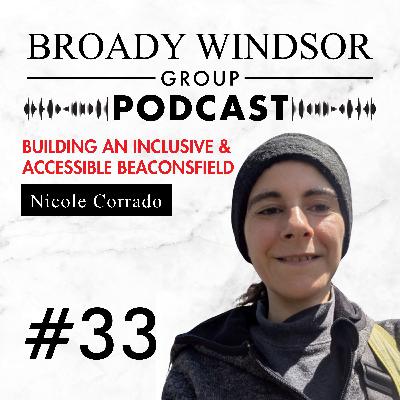
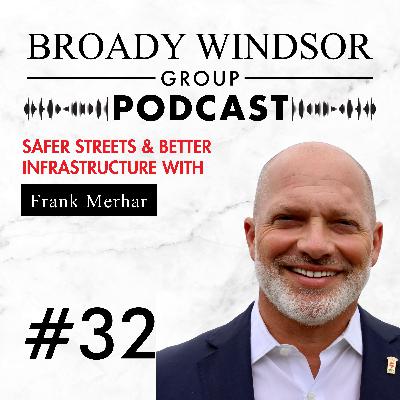
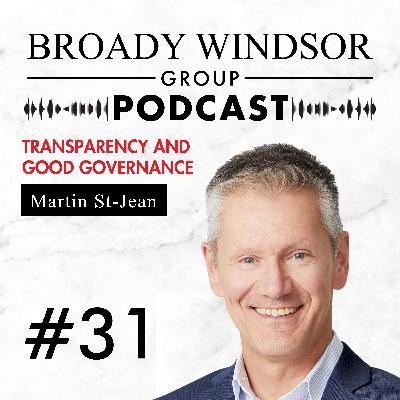
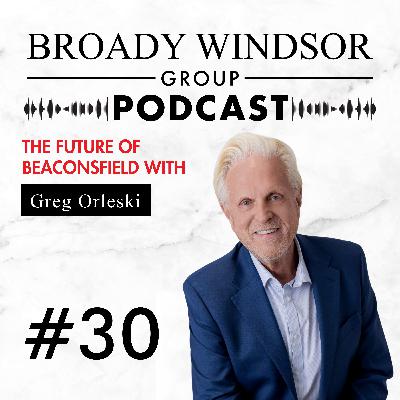
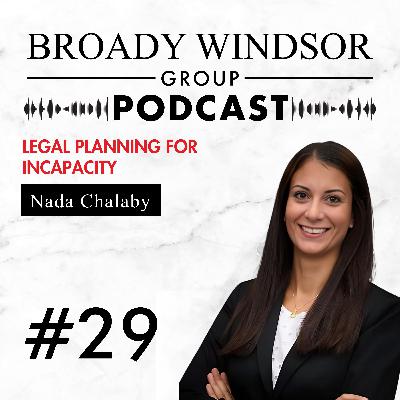
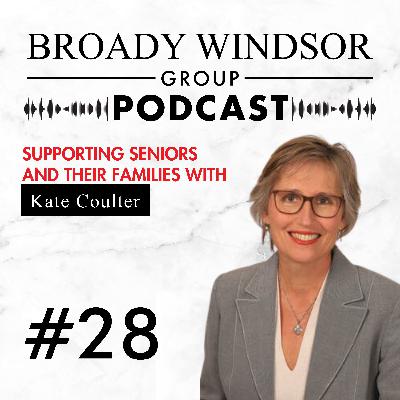
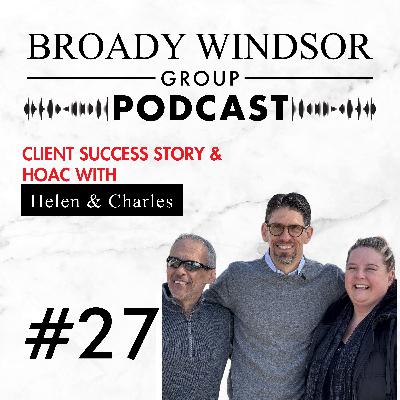
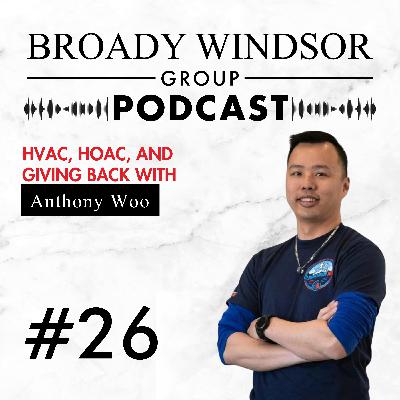
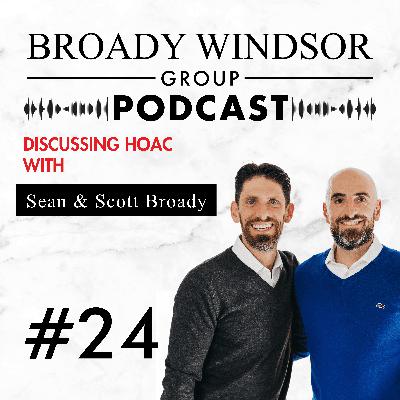
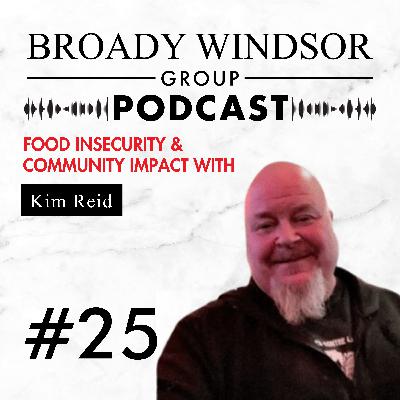




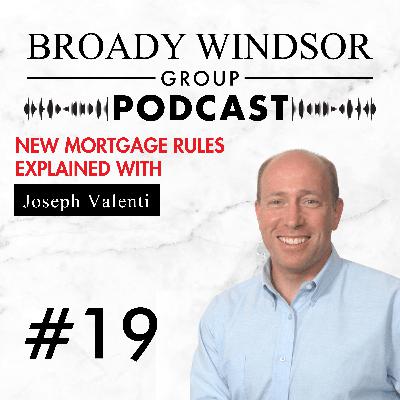

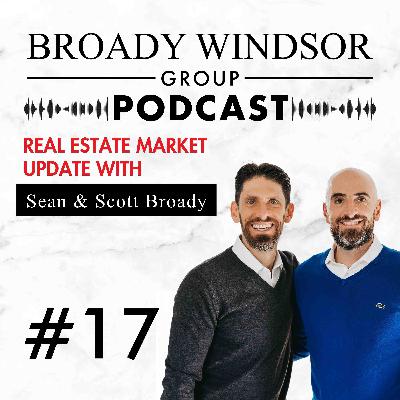





Heating, ventilation, and cooling are essential for maintaining comfort in any environment, and nobody does it better than "The HVAC Whisperer," Anthony Woo. Known for his expertise and dedication, Anthony ensures systems run efficiently year-round. If you're searching for the Best Heat And AC Repair In Phoenix, his services are unparalleled, offering quick and reliable solutions. With a focus on energy efficiency and customer satisfaction, Anthony provides tailored recommendations to meet every need. Trust "The HVAC Whisperer" to keep your home or office perfectly climate-controlled. https://azacandheatservices.com/
I really enjoyed this episode with Anthony Woo, aka "The HVAC Whisperer." His community-centered approach and dedication to client education make him a standout in the HVAC industry. It’s inspiring to hear how he transitioned from the restaurant business to building his own successful HVAC company, focusing on genuine connections rather than just sales. Anthony's philosophy of empowering clients by teaching them about their own HVAC systems shows his commitment to service over profit—160 five-star reviews say it all! The Q&A on HVAC technology and the discussion on heat pumps were super insightful, especially for those of us in colder climates looking to improve energy efficiency. Please visit here and guide me :https://alpheating.ca/